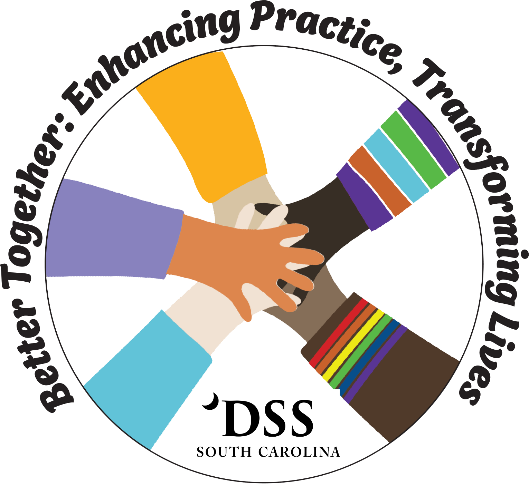SCDSS Refugee Resettlement Program
“The best and most beautiful things in the world cannot be seen, nor touched...but are felt in the heart, one of which is HOPE – for a better life!”
- Helen Keller
Who are refugees?
Refugees are people who flee from their country of origin and are unable to return because of a well-founded fear of persecution because of: race; religion; nationality; membership in a particular social group; or political opinion. Refugees come from all parts of the world, and represent various nationalities, origins, and cultures. A refugee is different from an immigrant. Although both are foreign-born individuals, an immigrant voluntarily leaves his/her country of origin. A refugee is someone who is forced to flee from his/her country due to persecution and/or oppression.
Overview of Refugee Resettlement Program
Individuals outside the United States seeking admission as a refugee under Section 207 of the INA are processed through the U.S. Refugee Admissions Program (USRAP), which is managed by the Department of State in cooperation with the Department of Homeland Security (DHS) and Department of Health and Human Services (HHS). Those admitted as refugees are eligible for U.S. government-funded resettlement assistance.
The first step for most people seeking refugee status is to register with the United Nations High Commissioner for Refugees (UNHCR) in the country to which they have fled. UNHCR determines if an individual qualifies as a refugee and, if so, works toward the best possible durable solution: safe return to the home country, local integration, or permanent resettlement in a third country.
The U.S. Department of Health and Human Services, Office of Refugee Resettlement provides funding to states for refugee assistance. The Refugee Resettlement Program at the SC Department of Social Services manages and administers funds for refugees who have been admitted into the United States by USRAP and are approved to receive benefits and services. The SCDSS Refugee Resettlement Program staff coordinates and provides quality services that will enable refugees to become self-sufficient, self-reliant and productive members of society. Our office serves as a link between the refugee population, other social services agencies and service providers.
How refugees resettle in South Carolina
It is the historic policy of the United States to admit refugees of special humanitarian concern, reflecting our core values and our tradition-being a safe haven for the oppressed. The President, in consultation with Congress, determines the numerical ceiling for refugee admissions each year. The State Department and Department of Homeland Security (DHS) are the primary agencies that assess the viability of different refugee populations for admission, as well as the capacity of U.S. government officials to process them. For FY2023, the presidential determination for Refugee Admissions is 125,000. With SC being approved to resettle over 600 refugees through federally approved resettlement agencies. In South Carolina, the current volunteer organizations responsible for Refugee Reception and Placement are Lutheran Services of the Carolinas (LSC) in Columbia, SC and World Relief-Upstate in Spartanburg, SC.
The Refugee Resettlement Program coordinates allowable services through contracts with providers to assist refugees in making the transition to life in the United States. All services provided in the Refugee Resettlement Program (RRP) focus on family and individual self-sufficiency.
Services are also available to the following groups, referred to as ORR-Eligible Populations.
Asylees
Cuban/Haitian Entrants
Amerasians
Victims of Human Trafficking
Survivors of Torture
Special Immigrant Visas (SIVs)
Ukrainian Humanitarian Parolees
Afghan Humanitarian Parolees
Refugee Resettlement Program Services:
Refugee Cash Assistance (RCA):
Refugee Cash Assistance allows employable refugees that do not meet TANF guidelines to receive financial assistance for up to 12 months after arrival in the US. The RCA cash benefit amount is the same level as TANF benefits. Eligibility guidelines and other criteria for RCA parallel the federal TANF and State program guidelines. Applications for RCA must be filed at the DSS office in the county where the refugee resides.
Refugee Medical Assistance (RMA):
Refugee Medical Assistance provides a health screening within 30-90 days days after arrival, as well as other medical assistance for up to 12 months after arrival in the US. Eligibility guidelines and other criteria parallel the State’s Medicaid program guidelines. Applications for RMA must be filed at the local Medicaid office in the county where the refugee lives.
Refugee Social Services (RSS):
Refugee Social Services include employability services such as: job preparation training; obtain and retain job skills; vocational skills training; On-the-job training (OJT); Case management; English Language Training (ESL); translation and interpreter services; citizenship and naturalization prep; and social adjustment services. These services are offered through contract agreements with various service providers. Some services are available for up to five (5) years.
Payment for all Refugee services are managed and coordinated directly by the Refugee Resettlement Program at the SC State Department of Social Services Office, located in Columbia, SC.
For more information contact:
Mailing Address
SC Refugee Resettlement Services
South Carolina Department of Social Services
P.O. Box 1520
Columbia, SC 29202-1520
Physical Address
South Carolina Department of Social Services
1535 Confederate Avenue Ext.
Columbia, SC 29201
Contact Phone Numbers
1.800.922.1548


